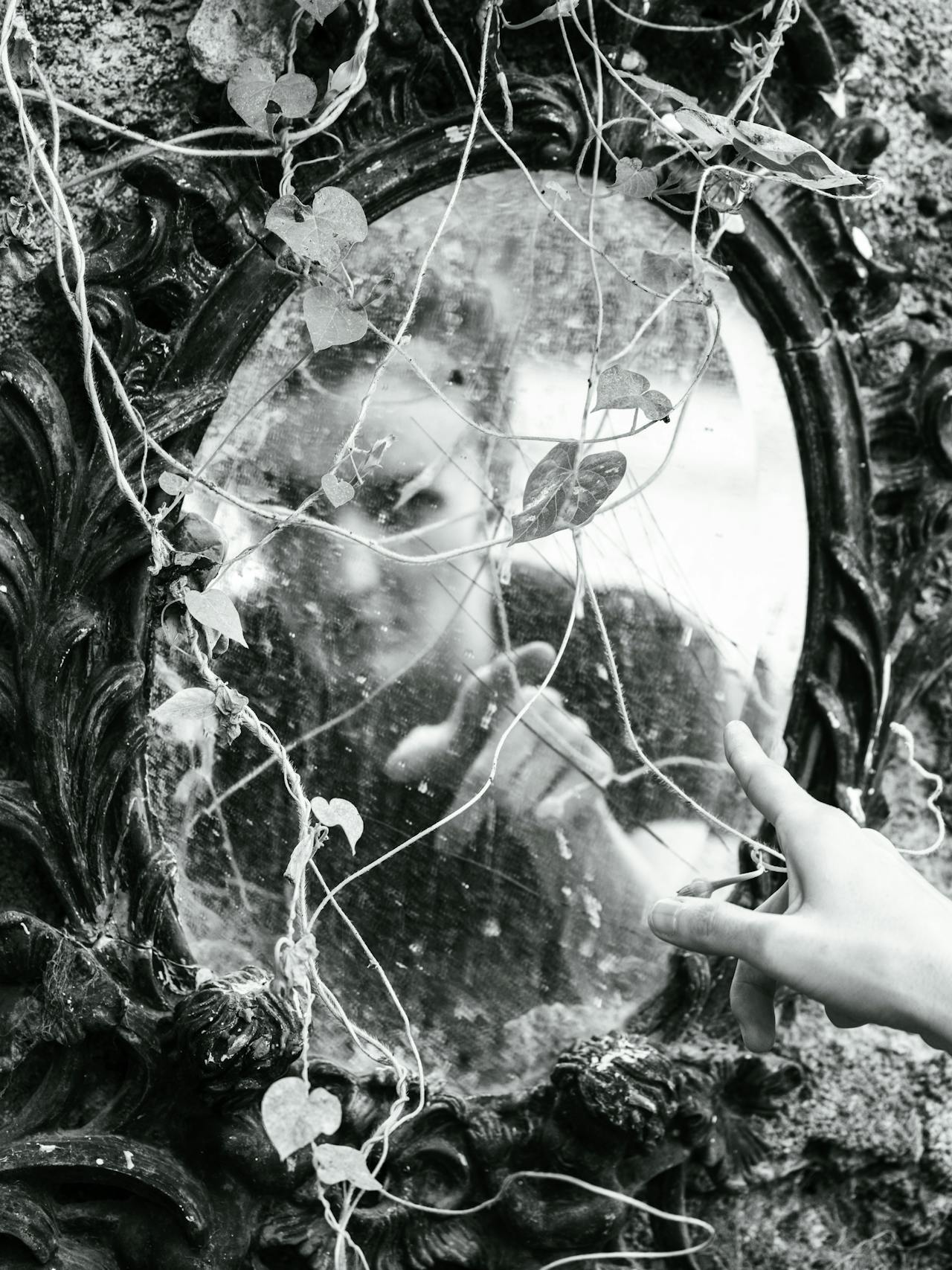
{*Did you know you can write on Elephant? Here’s how—big changes: How to Write & Make Money or at least Be of Benefit on Elephant. ~ Waylon}
Have you ever been in a situation with someone you love where, when you challenge their harmful behaviour, they turn the tables on you?
They call you too sensitive, complicated, or even crazy for feeling the way you do.
This creates a whirlwind of confusion within you.
No matter how well you try to express your sovereign truth while honoring theirs, they spin you in circles, relentlessly avoiding the impact of what you’re sharing. Eventually, you begin to doubt yourself.
You ask yourself how they can do this if they say they love you. You shake your head in disbelief, feeling your thoughts twist inside.
Then, because you love them and have empathy, you question yourself, give them the benefit of the doubt, and look for ways to improve yourself.
This experience is usually followed by love bombing.
Every few weeks or days, the cycle repeats, slowly wearing you down and dimming your soul light.
Welcome to the disruptive dance of narcissism.
Today, I read a quote that made my jaw drop. It was from Karl Marx. He said, “Accuse your enemy of what you are doing, as you are doing it to create confusion.”
What a statement!
I thought to myself, here is the blueprint for the untamed narcissism we see emerging so frequently today. It has become one of the hottest topics on blogs, podcasts, and in magazines.
But what I find missing in much of the material out there is a deeper understanding of why a narcissist behaves as they do, why they don’t see themselves, and why it is more appealing to stay locked in the dynamics of narcissism than to evolve beyond it.
Most vilify narcissism and falsely identify many family members and colleagues as pathological narcissists when they are not. The majority, as I have witnessed, are simply caught in unconscious narcissistic trauma survival patterns.
There is a big difference between the two, and, in fact, the percentage of true pathological narcissists is quite low according to statistics.
A pathological narcissist is intentionally manipulating, fully aware of what they are doing.
In contrast, most of us are completely unconscious of what we are doing when exhibiting narcissistic behaviours. It is a hardwired survival system developed in our youth to keep us feeling safe and even powerful.
Reading this quote by Karl Marx got me reflecting on his influence on humanity and how our innate kind and empathic responses to life are viewed as weak by those like him.
Weak, because those qualities feel like they expose us to danger by requiring us to be vulnerable.
Yet, the truth is, vulnerability is our superpower.
Reflecting on this, I gained a glimpse into how this narcissistic mechanism has gained momentum and popularity, little by little, reducing our innate empathetic nature into primitive survival behaviors for dominating and having power over others.
We see it everywhere now.
So, I asked myself, how did his statement contribute to making the experience of narcissism more prevalent than ever before?
To understand this, we need to first identify the root of all distorted narcissistic behaviour: trauma.
When we have experienced childhood trauma, which we all have to varying degrees, where aspects of our true nature were interrupted by shame, guilt, or abuse, our brains develop differently.
Our limbic brain, also known as the reptilian brain, can overdevelop. This can interrupt the development of our frontal cortex, which enables us to reason, problem solve, connect to insight and intuition, and is the home of commonsense conscience where we know right from wrong, good from bad.
Trauma is a spectrum. As I explained in a previous article, we cannot compare traumas, as it is not so much the “what” happened, as the impact it had that informs the trauma imprint in our nervous system.
In the case of a pathological narcissist, there has often been such extreme trauma that their limbic survival brain is more developed than the frontal cortex, leaving us without the ability to see the harm we are doing. It’s like a trauma trance we are in, often impossible to break out of.
Why is it so impossible to break out of? Because it is linked to our survival.
When we are caught in narcissistic defensive behaviours, admitting that our way of being could be wrong or incomplete puts us in a place of vulnerability, which is the last thing we want to experience.
To remain in our sense of safety in moments like these, when caught in a survival trance, we must manipulate the perception of reality to make the other person doubt themselves.
As Karl Marx said, to create confusion and disorientation as a way to gain power and authority over another.
It’s a power struggle that leads to the domination of one over the other.
This is the sole goal of Karl Marx’s statement.
It appeals to our basic survival biology, void of conscience, empathy, and accountability, because it keeps us feeling safe.
These three above attributes are the consistent identifying traits of a narcissist.
Only their truth is true. They are locked in black-and-white thinking, which always leads to harming ourselves and others.
To evolve and rise above those primitive survival mechanisms requires us to self-reflect and include the other.
It requires great effort to grow against the strong magnetic pull of our untamed lower survival nature.
It requires us to feel.
It requires us to be accountable for our influence and effect on others, even unintentional harm.
It requires us to step out of the polarized duality of “I am right, you are wrong” to see that all experiences and feelings are valid, even if we do not understand.
“Out beyond ideas of wrongdoing and rightdoing, there is a field. I will meet you there.” ~ Rumi
Seeing through this lens is how we can identify and tame our unconscious narcissistic tendencies when they surface.
This leads us to be willing to drop our defences, for a moment, to be vulnerable, and open our mind and heart to other possibilities of seeing ourselves and others, that yields insight and understanding.
Beyond our personal dogmas developed by our survival instinct, which are never completely accurate.
This is how we can redirect our natural defensive survival narcissistic tendencies when in conflict and confrontation so we can heal the pain buried beneath the reactions.
This is what needs to be possible in a healthy relationship where both are mutually engaged in self-discovery, evolving into higher consciousness by taming our limbic reactions and developing our frontal brain responses when triggered.
It’s definitely not easy, usually messy and uncomfortable, but so worth the effort.
If my husband and I did not mutually meet those moments in this way, we would have broken apart long ago. Instead our connection grows deeper.
Karl Marx’s statement empowers the limbic brain to take over: cold, heartless, and unaccountable.
It is appealing because it is easy.
Yet, what is of any true value and merit always requires effort.
It takes effort to shift from anger to humour, seeing the parody of being human, to stop taking ourselves so darn seriously.
It takes effort to transform pain to joy.
It takes effort to love when we want to indulge in the drunkenness of hate.
It takes effort to shift from intolerance to kindness and compassion, seeing our mutual humanity.
Ultimately, in my view, the key difference between being a pathological narcissist and someone in a pain cycle, temporarily caught in unconscious narcissistic trauma patterns, is the willingness to reflect and be wrong.
The willingness to genuinely listen.
A willingness to open to a broader view of the multiple layers of truth that co-exist simultaneously, to meet in the field, as Rumi puts it, where we can connect in the heart, open, vulnerable, and willing to learn and grow beyond where we are, to a more wholesome and loving way of being that enhances love and living, rather than destroying it.
Love is always the answer.
We must remember how to move as love moves us. Call love into those dark and painful moments.
Love is the best guide.
That is how we bring light and healing to our unconscious shadow narcissistic survival mechanisms.
This is how we can grow deep into a relationship with ourselves and each other, which is what we all crave.
This is how we create peace on Earth, within ourselves first, and with our loved ones.
Our effort is our love expressed.
To live the best life we long to live, we must rise to the occasion, to put in the effort to love no matter what.
This is for me the path to true freedom and empowerment for all.
~
{Please consider Boosting our authors’ articles in their first week to help them win Elephant’s Ecosystem so they can get paid and write more.}











Read 3 comments and reply